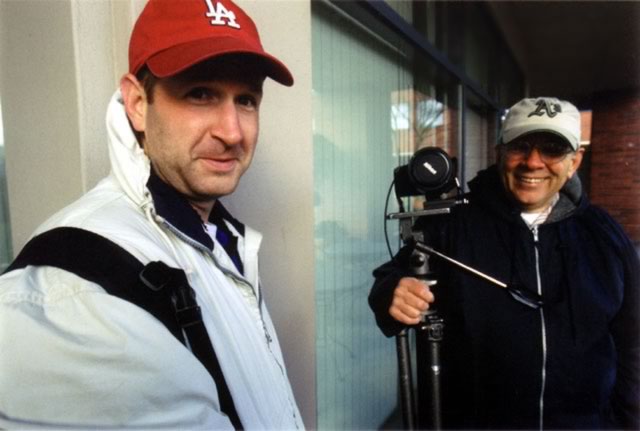8 tips for saving money on hobbies and pastimes
Lee wrote with an innocent question about photography equipment yesterday. Little did she realize I’d already been thinking about the broader issues of her dilemma. Here’s an abridged version of her message:
A friend asked me about cameras. He went shopping last weekend and saw lenses that ranged from $200 to $700. He felt that the lower-end lenses would not work for him, but he wasn’t prepared to spend $700, so he went home. Now he’s reconsidering. Of course the one he liked was $700. He thinks he should go to a camera store for some professional advice. What do you think?
Ah, the lure of photography. About five years ago, I spent a couple thousand dollars on camera equipment. Before I started Get Rich Slowly, I seriously considered trying to become a professional photographer. (A dream perhaps best left unpursued.) I believed that by throwing money at the hobby, I could improve my results.

This year, I’ve discovered the joy of running. On the surface, it’s a sport you can pick up with no equipment at all — you can just run in a pair of sneakers. As with anything else, I’ve discovered there are tons of things to buy: running shoes, special socks, water bottles, logbooks, and high-tech heart-rate monitors.
Which expenses are worth it and which are not?
When you begin pursuing any sport or hobby, it can be difficult to decide where to spend your money. The initial temptation is to buy the best gear now. But I’ve learned from experience that the best gear is worthless if I’m not skilled enough to use it. Before you spend money on a new pastime, consider the following:
- Know your goals. What is your aim? What kinds of photographs do you wish to make? Or, if you’re looking to purchase a bike, what is your objective? Do you want to commute five miles back-and-forth to work? Do you want to train to ride one-hundred miles? Are you just looking for something to putter around on with the kids? Be realistic. Be honest. Use your answers to help guide your decision.
- Educate yourself. When I was starting out, I didn’t like the quality of my photographs, so I did what many people do: I threw money at the problem. I bought expensive filters and lenses. I bought Photoshop. None of these things helped. My images still looked lousy. What did help was spending $150 on a community college photography course. An amateur photographer is going to get a much better return for her money by taking a photography class (or three) than by purchasing a new lens.
- Practice, practice, practice. Too often people believe that the equipment is going to increase their skill at something — golf, photography, whatever — when actually it’s practice that will help them improve. There’s no sense buying an expensive driver if you can’t hit the ball straight off the tee. Once you’ve hit a few thousand balls (or snapped a few thousand photos), then you might begin thinking about how new equipment might further improve your strengths.
- Don’t take advice from a salesperson. Yes, she knows a lot about the subject, but in general, her primary goal is to sell things. She wants you to buy more. Instead, find a friend who can give you advice on the equipment you’re researching. Use Google. If you need advice, get it from somebody who doesn’t have a vested interest in your purchase. Once you’ve done your research, then ask for a salesperson’s help.
- Borrow from a friend. Kris’ sister thought she might want to learn how to knit. Rather than buying a bunch of equipment, Tiffany borrowed a few of Kris’ knitting needles to give it a try. She did take up the hobby, but by borrowing Kris’ stuff first, she was able to learn the ropes before shelling out her own money.
- Consider used equipment. Check Craigslist or eBay. Find a dealer of used equipment in your town. You can often find high-quality items for cheap if you’re patient and know what you’re looking for. A friend of mine recently saved 33% off a fancy heart-rate monitor simply because he was patient and willing to buy used.
- Rent! For many sports and hobbies, renting is a great way to get a taste of the high-end. How often do you scuba dive? Ski? Instead of buying equipment that will mostly sit unused, consider renting when you need it. This not only will save you space, but can actually be less expensive in the long run. Renting is also a good way to try before you buy.
- Beware a hobby or sport that is driven by purchasing more stuff. Some hobbies are simply sales pitches in disguise. I’ve written before about my own obsession with the card game Magic: The Gathering, a game specifically designed to get
suckerspeople to spend more money. Kris was once into scrapbooking. She loved it, but she came to realize it was more about buying new Stuff than actually creating memories. Like many scrapbookers, her supplies now sit in the closet, unused.
Fancy equipment is not a panacea. In most hobbies and sports, skill is more important. Don’t get me wrong — good equipment can make your pastimes more pleasurable. But it’s difficult to know which equipment is worth the expense until you’ve gained some experience.
My photography instructor used to tell us, “A professional photographer can produce amazing shots from a crappy disposable camera. But a $5,000 camera won’t help a beginner make better photos.” This idea isn’t just true with photography — it’s true with knitting and biking, and even with running, too.
Become A Money Boss And Join 15,000 Others
Subscribe to the GRS Insider (FREE) and we’ll give you a copy of the Money Boss Manifesto (also FREE)
